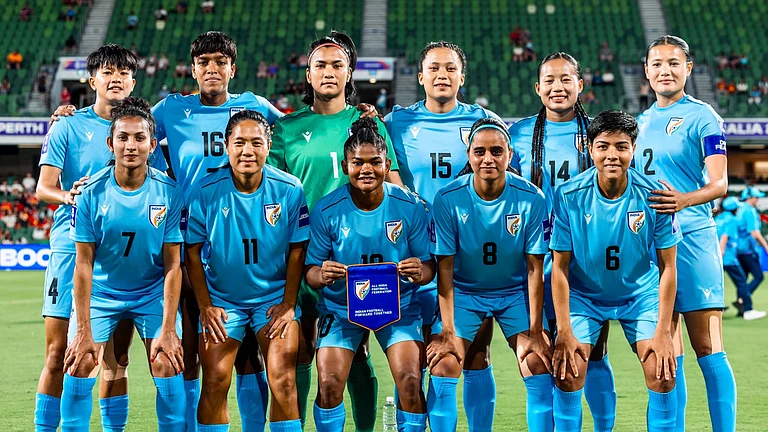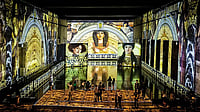God’s Injustice
Banaras—I still prefer to call the city by that name over Kashi or Varanasi—brings back many fond memories to me. As a child, I made many trips to Banaras with my mother and sisters, from the neighbouring city of Allahabad, to spend our summer vacation with my maternal grandfather. I still find comfort at the thought of the gullies and the ghats of the city, the lyrical Bhojpuri dialect of ailu-gailu—distinctly different from the Avadhi of Allahabad—and the morning poori-sabzi.
My maternal grandfather had wished to die in Banaras, considered the stairway to heaven by devout Hindus. He retired from his job with the railways and moved from Lucknow. Waiting for the final call in the two decades that followed, he rarely spent a night outside Banaras. Alas, he breathed his last in Lucknow where he had to be rushed with a medical emergency.
Khela Hoga
Loafing on the ghats of the Ganges, I stop for a chai at the Dasashawamedh Ghat. Election chatter can be heard in Benaras in every nook and cranny these days. I add my bit to the little group sipping tea at the shop. “Looks like kamal, the BJP is sweeping?” A 20-something man, pointing to another man about my age, in the mid-50s, possibly a boatman, says, “Yes, these older manais (folks) will be voting for the kamal”. Pat comes the response, “Nonsense, Corona kaal (era) has completely destroyed us.” I sense a little provocation can bring out some more juice, “But look at the vikas. All these ghats are rebuilt by the BJP.” The boatman protests, “That’s not correct, the ghats were rebuilt by Rajiv Gandhi in 1987. Modi ji got them desilted.” I say, “So, will the cycle ride (Samajwadi Party)?” Predicts the younger man, “No, not in Banaras. Maybe in other places.” The boatman responds with what everyone else is saying, “There will be kaante ki takkar (fight to finish) this time.”
Small Is Beautiful
In the past few years, I have visited Banaras for the Dhrupad Music Festival held at Tulsi Ghat. But I must put forth a disclaimer: I am illiterate as far as music goes. I am a binge listener of music of all kinds. Over time, I trained my ears to enjoy music. Dhrupad is a music genre of ancient Hindu India, but in modern times the most well-known singers are Muslims. Dhrupad lyrics are all prayers to Shiva and Parvati. Dhrupad Mela, in its 48th year, is not very well-known in the music festival circuit. It is hosted around Shivratri over five nights. I found out about this little gem of a music festival, like many other hidden gems in India, from my hippie friends who have been visiting India since the 70s. One of the star performers this year, Umakant Gundecha of the famous Gundecha brothers, paired up with his new partner, the young Anant Gundecha, son of the departed brother-partner Ramakant. I will not risk myself in putting out my judgement on whether the magic of the famous duo, one of the finest exponents of the Dagar Gharana since 1985, could be recreated by the new combination, but the countertenor voice of the Gundecha progeny impressed me.
Home of Shiva
Evidence in Hindu mythology suggests Shiva is a left-liberal God. Shivji ki baraat, a commonly-used metaphor in the Hindi heartland, is used in describing a ragtag army. Shiva’s followers are non-conforming rebels, uncomfortable with opulence and opposed to ostentations. When Shiva brings his wedding party to marry Uma on earth, her mother faints at the sight of the dreadlocked ash-smeared groom and his company in a similar appearance. Shiva is easy to please, all that is needed are some drops of water. Shiva’s blessings have sometimes resulted in calamitous situations on earth, which is when Vishnu, the other god in the triumvirate with Brahma, had to attain an avatar of himself to finish off the evil blessed by Shiva. Banaras is the home of Shiva, and like everywhere else, he resides almost everywhere—from under a peepal tree to the big temples. Shiva, who in Banaras plays Holi with the dead spirits at the cremation, has now been given a new home, refitted and gilded. It’s Varanasi’s new tourist attraction.
(This appeared in the print edition as "Banaras Diary")
Bishwadeep Moitra (is the co-founder of Silaiwali, a social enterprise)





















